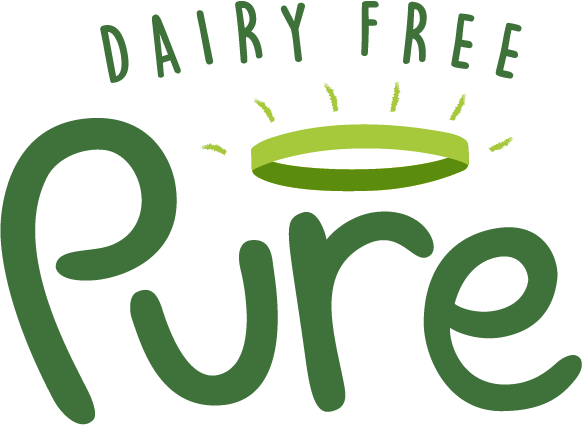The most popular dairy free foods
With more and more milk alternatives continuing to make their way to supermarket shelves, the dairy free landscape is looking better than ever. Milk, cheese, butter, cream… You name it, there’s a delicious dairy free version now on offer. Whether you’re a vegan, lactose intolerant, dairy allergy sufferer or simply avoid milk out of choice, doing a big shop or eating out is now a much more pleasant experience than several years ago.
Dairy free food is a healthy option, but that doesn’t mean taste or excitement is compromised. It’s now very easy to find the right alternative to help recreate your favourite creamy pasta sauce, cheese pizza or chocolate pudding. We’ve taken a closer look at some of the most popular dairy free food, explaining what it is, where it comes from, and how it can benefit both your diet and your tastebuds.
Soy
The soybean, or soya bean, is a type of legume native to East Asia. It’s been a staple part of Asian diets for centuries, but has more recently spread to the Western world in various forms including tofu, miso and edamame beans.
Soybean plants are a fairly easy crop to grow in the right conditions, and flourish during hot summers in moist soil that’s not overly saturated. The plants can grow to around two feet tall, and are harvested when the pods are still green. These immature beans are what we know as edamame, which have made their way onto the mainstream via sushi bars and specialist Japanese supermarkets.
When soybeans mature they turn firm, requiring a good soak to make them tender and edible. The typical yellow soybean is an ideal ingredient in soups and stews, while black varieties are served as tasty side dishes and salads. Soybeans can also be cooked and squeezed to produce milk, ground into flour, and fermented into a paste as miso and tempeh. Soybean curd is also used to produce tofu, which is a popular meat alternative.
One of the main benefits of soya is its versatility, along with its high protein and fibre content. It is also extremely tasty, and is a big favourite amongst the dairy free community.
Nuts
Nuts consist of an edible seed within a fruit, and grow in a variety of weird and wonderful ways. Almonds, for example, start out in fuzzy green shells that split at the end of summer to dry out, while cashews come from a tropical fruit that sprouts nuts within toxic shells (that’s why you can’t buy un-shelled cashews!) One of the most interesting is perhaps the peanut, which despite its name isn’t actually a nut, but a legume that grows underground.
While different nuts contain different amounts of nutritional value, what they all have in common is high protein, fibre and good fat content. Some of the other benefits include high levels of antioxidants and omega 3, as well as vitamin C, magnesium and potassium.
One of the best nuts for the dairy free diet is almonds, which are rich in calcium and can be ground into a delicious milk alternative and nut butter. Cashews are also a favourite amongst those forgoing dairy, utilised in vegan cheese, cream and fudge as a nutty yet creamy alternative.
Coconut
Coconuts come from the coconut palm, a tree that thrives in sandy soil and warm weather. Coconuts are not a nut, but belong to the family of drupes or stonefruits. They grow in around 90 countries worldwide with most of the production coming from Asia.
The coconut palm is revered as the ‘tree of life’ or ‘tree of a thousand uses’ since it provides such a wide array of products and by-products. From food, milk and oil to shelter, fuel and decoration, coconut trees have nourished and protected people for centuries.
Coconuts are an excellent dairy substitute as the flesh can be grated and squeezed into milk. This can then be used as a cream or ice cream, providing a nutritious and delicious milk replacement. Coconut oil is also an alternative to butter in cooking, as well as fabulously moisturising for the skin and hair.
Avocado
The avocado is a berry that grows in tropical and subtropical climates. With various names all over the world, it is known in the UK as the avocado or sometimes the avocado pear, due to its curvy shape. Avocados mature on the tree but ripen after harvesting, which is why many supermarket varieties recommend ripening at home. In prime condition, avocados have a smooth texture and are yellowy-green in colour.
Avocados provide almost 20 different vitamins and minerals, and whilst they are low in sugar, they can be considered calorific. However, the fats they contain are mono saturates, which are well known as good fats that help lower cholesterol levels.
Once ripe, avocados are an excellent solution for those following the dairy free lifestyle. They are the perfect addition to smoothies and sauces, providing a rich creaminess without the naughtiness. Avocados are also a great butter alternative when it comes to baking, and can be whipped up into mousses and creams for those that fancy a sweet treat.
Dairy free food is no longer regarded as a boring alternative that lacks taste. In fact, it’s fast becoming a trend for both professional chefs and at-home cooks to come up with new recipe ideas that utilise milk free ingredients. And with the wealth of alternatives now readily available, the world of dairy free will only get more exciting!
